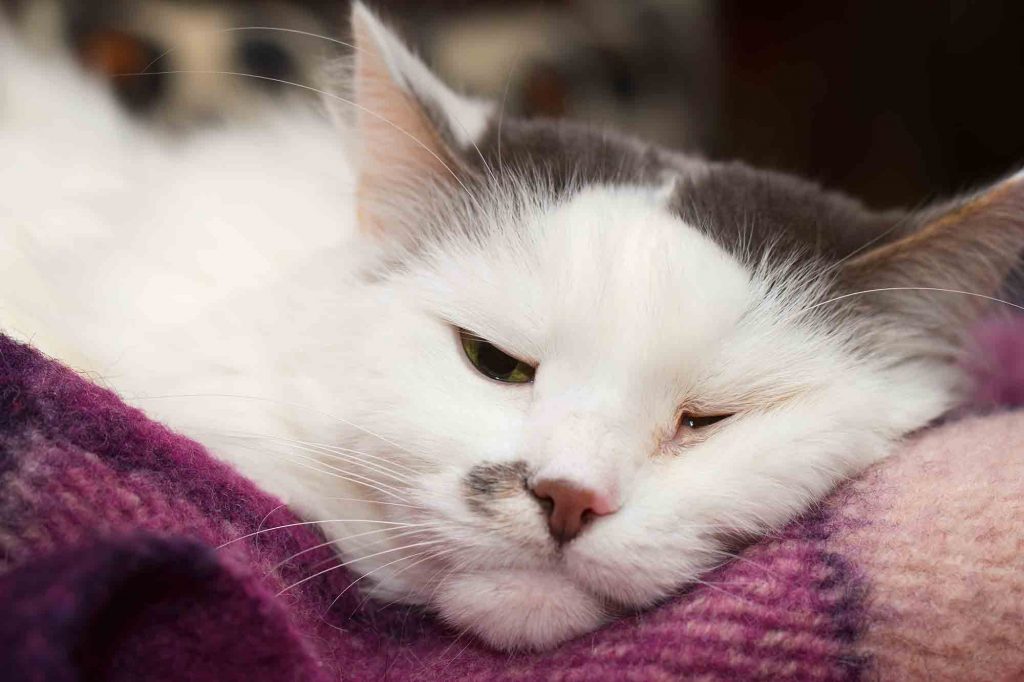An Age-Old Mystery: Why do Cats Sleep so Much?
 Where is your cat right now? If you’re reading this on your tablet or laptop, there’s a good chance he or she is attempting to schedule an unplanned snuggle – right on top of the screen. If Fluffy is absent, he or she is likely either dreaming or waking up from the 9th cat nap of the day. Cats are definitely lounge lovers, but there’s more to this indulgence than meets the eye. Cats sleep an average of 16-20 hours every day, but why?
Where is your cat right now? If you’re reading this on your tablet or laptop, there’s a good chance he or she is attempting to schedule an unplanned snuggle – right on top of the screen. If Fluffy is absent, he or she is likely either dreaming or waking up from the 9th cat nap of the day. Cats are definitely lounge lovers, but there’s more to this indulgence than meets the eye. Cats sleep an average of 16-20 hours every day, but why?
Cat Sleep Patterns
While many cats are active at night (especially kittens), their species is actually classified as crepuscular, meaning they “come alive” at dawn and dusk. This is explained by the fact that other natural predators are usually hunting in the deep night or daytime hours.
Newborn kittens typically sleep 24 hours a day, growing while they nurse and sleep. As a kitten matures, the amount of sleep required diminishes to an average of 16 hours a day. The cycle revs up again in the senior years.
A cat’s behavior is highly adaptable, and many animals will adjust sleeping patterns in order to spend time with their favorite people. They’ll also adjust naptimes to feeding schedules.
Hunters
Even if you own a strictly indoor cat, you’ll still see primal instincts from time to time. Cats in the wild spend an exorbitant amount of energy hunting and must rest after a chase. So, one of the basic reasons that explains why cats sleep so much is due to instinctual feline behavior.
Cool Down Mode
Felines have also adapted to exist in hot climates, and this ability to thrive in certain locations means they’ve figured out how to keep themselves cool. Cats sleep to conserve energy. Sure, other fur-covered mammals coast by on 8 hours of sleep (or less) per cycle, but cats may sleep to help regulate body temperature, as well as for pleasure.
Stay in Bed
Like the phenomenon of cats in boxes, cat owners can easily make the jump that cats sleep because it just feels good. They do seem to love a good snooze, don’t they?
On a cold, rainy day, you might find that Fluffy sleeps even longer and deeper. Rapid brain movement occurs in 5-minute increments and is bookended by lighter dozing patterns.
Otherwise, cats sleep in 15-30 minutes stretches, adjusting the body so they can spring into action if/when necessary.
Cats Sleep to Recharge Their “Batteries”
Whether cats sleep to dream about that coveted can of tuna, the bird house on the other side of the glass, or the box recently delivered from Amazon, you can bet your cat enjoys every minute of his or her slumber.
Your friends at Oakland Veterinary Referral Services always enjoy revealing answers to the questions that perplex our clients. We hope you’ll contact us for more information about your cat’s wonderful and mysterious behaviors.


